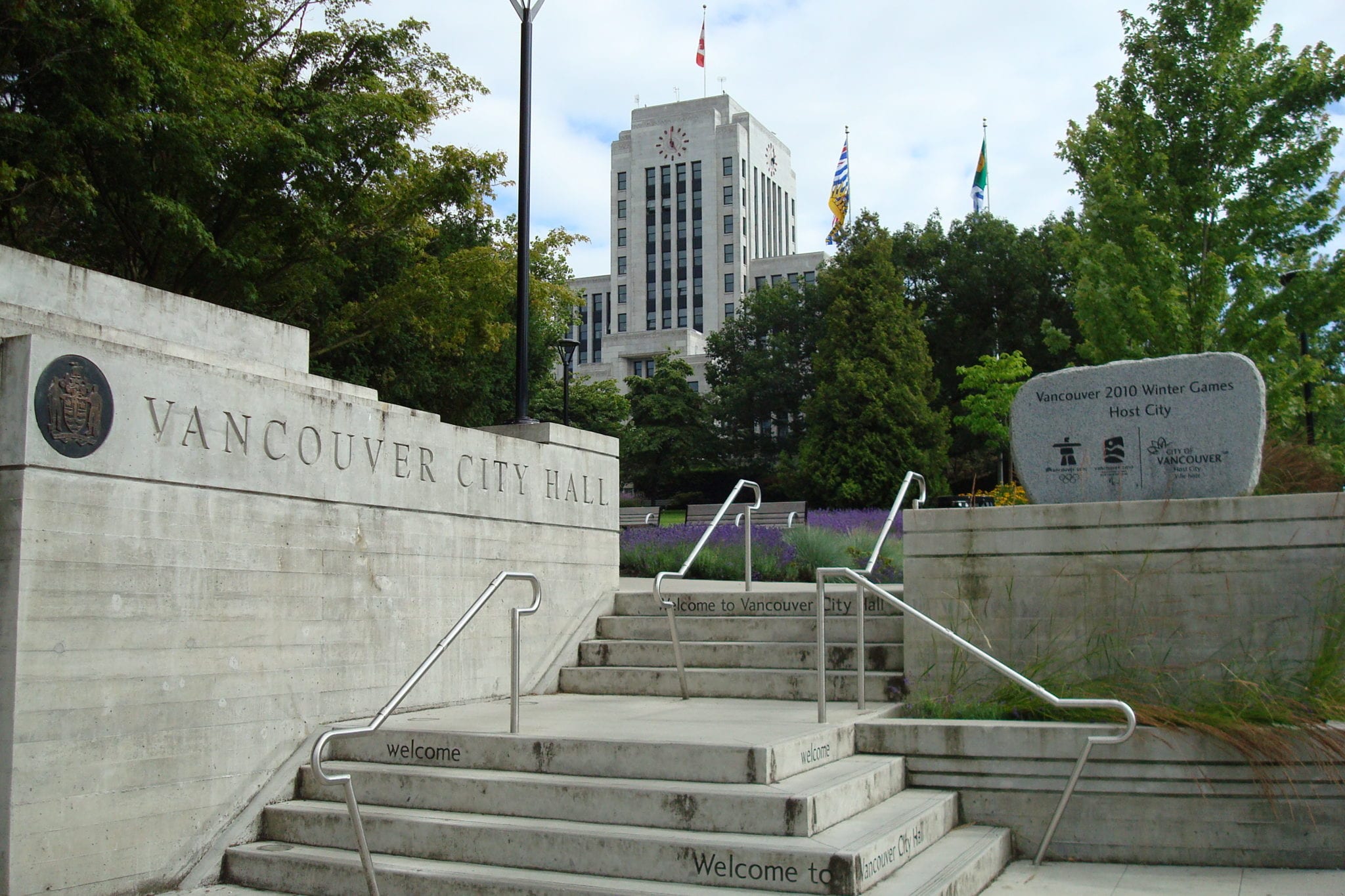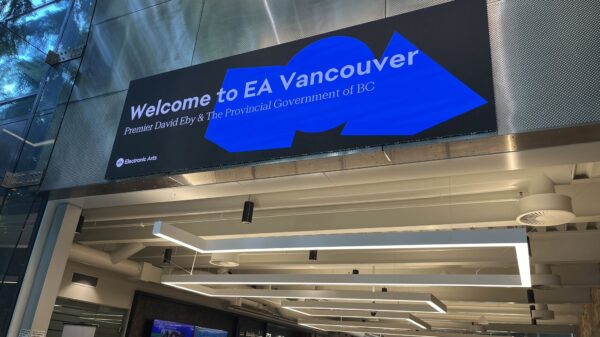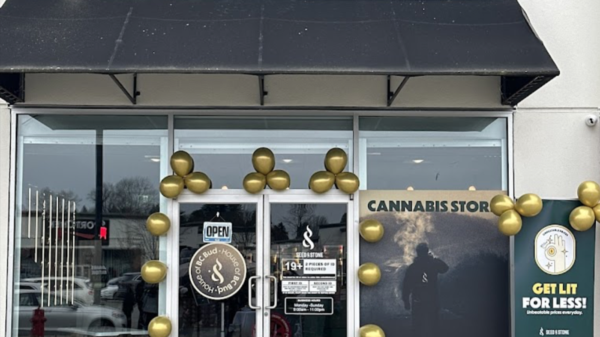Cannabis retail stores in Vancouver pay the highest business licensing fees in the country, and retailers are frustrated by a lack of reasoning for the lofty figure as well as where that money goes.
Every business needs a licence from the city to operate, but most are charged a couple hundred dollars annually. However, to sell weed in Vancouver costs a store around $35,750 every year. That includes a $33,958 licensing fee, an annual development application fee and GST.
Canadian municipalities generally charge business licensing fees to recoup the costs of overseeing and regulating businesses and are set by local government. To recoup the costs of regulating a restaurant that sells alcohol and seats 50 people, a licensing fee can be as low as $155. For the Pacific National Exhibition, which in a regular year attracts upwards of 700,000 patrons, Vancouver sets a licensing fee of $18,856.
But there seems to be a disconnect between collecting $916,866 before-taxes in licensing fees to oversee the city’s 27 cannabis stores, and collecting $886,584 before taxes in licensing fees to regulate the city’s 1,802 liquor stores, which each pay an annual $492 fee.

‘I think it is impossible that the cost impact on the municipality hasn’t changed since legalization has come through. I’m curious why they won’t provide the justification if it exists,’ says Jaclynn Pehota, executive director of ACCRES. ‘That seems like a very strange tact to take.’
Fees a carry-over from 2015 dispensary bylaw
“The reason Vancouver has such an exorbitantly and catastrophically out of line business licensing fee from the rest of the country — let alone the province — is because that licensing fee was a carry over from the original [Medical Marijuana-Related Uses] Vancouver bylaw,” explains Jaclynn Pehota, executive director of the Association of Canadian Cannabis Retailers. ACCRES is a non-profit association with 34 member brands that represent around 70 storefronts across British Columbia.
In 2015 Vancouver adopted a bylaw that would allow the regulated sale of medical cannabis, where retailers paid a $33,000 licensing fee that would be used to help the city cover the cost of regulating and policing the local, federally unsanctioned industry.
Read more: Imagine an inclusive system for Canada’s cannabis patients
Read more: Daily cannabis users 26% more likely to stop injecting opioids: study
When entrepreneur Mike Babins heard city hall was licensing these businesses, he decided to open a dispensary with his wife. In 2015 he said the city was upfront about how it would use the fees.
“When the licensing fees started, it was great because [Vancouver] was the first city to say, ‘We’re finding a way to legitimize this,'” Babins told Mugglehead in a phone interview. “The outrageous fees made sense because they were basically breaking the law on our behalf, standing up on our behalf. The legal fees that it would incur — it made sense.”
“That being said [Vancouver was] supposed to use the the licensing fees for enforcement against the stores that didn’t get licensed, and [the city] didn’t,” he says.
An unlicensed bakery would get shut down in a day, but it was never the same with cannabis, Babins continues. And that frustrated him because it felt like the city was enforcing its rules unevenly by making licensed stores jump through all these hoops, and pay all these fees, while turning a blind eye to unlicensed shops next door.
When recreational weed was federally legalized in 2018 Babins opened Evergreen Cannabis, Vancouver’s first regulated cannabis store. Legalization didn’t change the annual licensing fee. In fact, last year the city upped the fees.
“They didn’t do a public consultation. They didn’t explain why they were raising it,” he says. “They just told us they voted to charge us more money post-legalization.”
A perfect example of the uneven playing field faced by cannabis retailers. We engaged @CityofVancouver on this and they assert the fee is justified but refuse to provide proof of that justification. https://t.co/wCerri0TYL
— The Licensed Retail Cannabis Council of BC (@rccbc_ca) September 24, 2020
It’s an issue Pehota and ACCRES have been raising with the City of Vancouver for the past six months.
Business licensing fees are supposed to be an act of cost-recovery, so it doesn’t make sense that the city is charging more now than it did to regulate pre-legalization storefronts, she says.
Cannabis legalization transferred the responsibility, and therefore the cost of regulation and oversight as well, to provincial and federal governments, Pehota says. But Vancouver remains adamant that the $35,000 fee is justified, even though Pehota claims the city has refused to share a detailed breakdown of what costs the fees are recouping.
Licensing fees the only revenue municipalities have to recover cannabis costs, Vancouver says
When Mugglehead asked the city what the fees were used for, Vancouver’s chief licence inspector Kathryn Holm said the fees went towards transitional and operational costs related to the legalization of cannabis.
“The city continues to bear new one-time and ongoing costs in order to fully transition to legalized cannabis including licensing administration, enforcement of non-compliant operators, policing, and ongoing engagement with various levels of government on policy review and development,” Holm wrote in a statement.
Licensing fees are also the only revenue municipalities have to recover the costs of legalization, administration and enforcement, Holm said. She points to the 2017 Federal-Provincial-Territorial Agreement on Cannabis Taxation, which called on provinces and territories to “work with municipalities according to shared responsibilities towards legalization.”
But Vancouver has yet to be given cannabis excise tax revenue from the provincial government, Holm said.

Cannabis entrepreneur Mike Babins has been selling cannabis since Vancouver first licensed dispensaries in 2015. The city’s explanation for the fees made sense then, he says, but it doesn’t now. Photo by Noah Giroux
That explanation doesn’t fly with Babins, who was told the same thing when he asked why fees have only increased since he started paying them 10 years ago.
“You didn’t negotiate with the province so I have to pay the equivalent of a person’s salary every year?” he asks.
Vancouver isn’t the only city shouldering the expenses of transitioning a regulated pre-legalization market to the legal one. Victoria had a similar pre-legal system, but now charges a one-time rezoning fee of $7,500 and an annual licensing fee of $5,000 to sell weed, according to the city website.
In Kelowna cannabis retailers pay $20,140 to open shop. That chunk of change is made up of a $1,000 non-refundable application fee, a $9,495 rezoning fee and an annual $9,645 business licensing fee, says city business licensing manager Greg Wise. But Kelowna is currently updating its licensing fees so those numbers could change within the year.
Read more: Amnesty director calls for racial equity assessment in Canada
Read more: Retailers face backlash after ‘tone dead’ letter attacks illicit market
In Montreal, Toronto and Halifax, local government doesn’t collect any licensing fees from cannabis retailers, as almost everything to do with cannabis is handled by the province. Ontario exempts retailers from municipal fees but provincially charges $10,750 upfront for an Ontario Retail Operator Licence, and then a $3,000 annual fee.
In Quebec cannabis can only be bought from the Société québécoise du cannabis. Montreal does not charge any specific fees to the SQDC, but the provincial retailers do have to pay municipal property tax on any property they own, a city spokesperson said.

The City of Vancouver says it costs more money to oversee a single cannabis retail store — with sealed products and no on-site consumption — than it does to oversee the entire PNE with thousands of people and liquor sales, points out Jaclynn Pehota, executive director of ACCRES. Photo of Evergreen Cannabis by Sam Herman
So why does Vancouver continue to charge its cannabis retailers so steeply?
Pehota says the city could be using the “exorbitant” fees to recoup the cost of policing unregulated storefronts, “But that’s grossly unfair. For Safeway — is it built into their business licensing fee to enforce against people selling fruit in front of the skytrain station or bottle water illegally? The answer is no.”
Pehota says all she is asking is for the city to review the fee structure and move with the times.
“I think it is impossible that the cost impact on the municipality hasn’t changed since legalization has come through,” she said. “I’m curious why they won’t provide the justification if it exists. That seems like a very strange tact to take. If you want me to go away give me the justification and demonstrate that it is fair and reasonable and we will go away. Until that is the case it makes it hard to accept that’s just the way it is.”
When Mugglehead reached out to other retailers on this issue, many voiced concerns about being a squeaky wheel and facing reprisal from the city.
Pehota shakes her head at this, saying the way retailers have been treated is shocking. They compete with the illicit market and BC Cannabis Stores but have to deal with this 13th month of overhead costs, while receiving no accountability from the city in return, she says.
Because it seems like she won’t get any further explanation from city staff, Pehota says her next step is to go to city hall and speak to council this fall.
Top image of Vancouver City Hall in June 2011. Image by Kelam via Wikimedia Commons
michelle@mugglehead.com
@missmishelle














